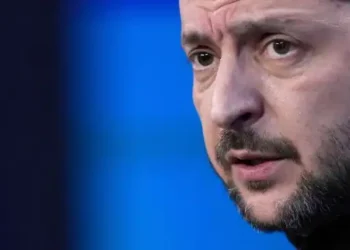In a determined move to align with the broader economic recovery strategy of the Mahama administration, the Minister for Communications, Digital Innovation, and Technology, Hon. Samuel Nartey George, has unveiled a raft of bold reforms aimed at enhancing transparency, accountability, and prudent financial management within his ministry.
Addressing a press briefing in Accra, the minister outlined a grim but honest assessment of the state of affairs he inherited, pledging unwavering commitment to fighting corruption and cleaning up the sector.
Hon. Samuel George’s remarks come against the backdrop of a national conversation on the need for responsible governance and fiscal discipline as Ghana battles to stabilize its economy.
The new administration has repeatedly emphasized the importance of restoring integrity across all sectors, and the Ministry of Communications appears to be a key focus area in this effort.
Hon. George revealed that one of his first acts upon assuming office was to initiate a comprehensive financial review of the ministry.
The objective, he explained, was to better understand the ministry’s liabilities and commitments and to chart a clear path forward. However, the findings were alarming.
“This review unearthed several irregularities prompting a detailed investigation into the contracts entered into by the ministry, through the ministry and its agencies on behalf of the Ghanaian people. The ministry is following up with the relevant parties to establish the facts and take corrective action where necessary”.
Hon. Samuel Nartey George, Minister of Communications, Digital Innovation and Technology
While he refrained from naming specific individuals or firms implicated, the minister underscored that the irregularities were significant enough to warrant further investigation.
He disclosed that some of the contracts and agreements have already been referred to the Attorney-General for detailed study and advice, an indication that possible legal action or contract terminations could be on the horizon.
“We’re deeply concerned about the disregard for public interest reflected in the unfavorable terms and some agreements, and the resistance encountered in assessing key information from certain service providers”.
Hon. Samuel Nartey George, Minister of Communications, Digital Innovation and Technology
The minister’s comments reflect a broader concern within government circles about the culture of impunity and opacity that often shrouds public procurement and contracting processes.
Vowing to end what he described as entrenched bad practices, Hon. George made a solemn public pledge to the President and the people of Ghana: to clean up the ministry and its agencies.
This strong personal commitment signals a new era at the Communications Ministry, one that could have wider implications for how contracts, public-private partnerships, and technological initiatives are managed across government.
Kelni GVG Contract to Be Terminated
Perhaps the most consequential announcement from the minister was the decision to terminate the controversial Kelni GVG common monitoring platform contract.
The Kelni GVG deal, signed under the previous administration, was ostensibly aimed at providing real-time monitoring of telecommunications traffic to ensure revenue assurance and combat fraud.

However, the contract has long been mired in controversy, with critics questioning its value for money, its opacity, and potential privacy violations.
Breaking down the structure of the contract, Hon. Sam George explained that it had two components: one funded by his ministry through the National Communications Authority (NCA), and another component funded by the Ministry of Finance through the Ghana Revenue Authority (GRA).
“This positioning is backed by the fact that at the commencement of the contract in 2018, the monthly fee the NCA paid the private partner represented 28% of the revenue accruing to the state from international inbound traffic.
“As we speak today, as at October 2024, the fees paid to Kelni GVG have moved from 28% of revenue to 84% of revenue. This means the state is paying far more to monitor the revenue than it retains.”
Hon. Samuel Nartey George, Minister of Communications, Digital Innovation and Technology
After a careful review, the minister said he had instructed the NCA not to extend the Kelni GVG contract beyond its current terminal date.
This decision is likely to be hailed by transparency advocates and sections of civil society who have long lobbied for a review and possible cancellation of the agreement.
It also signals a broader shift in how the ministry intends to conduct business going forward, prioritizing value for money, transparency, and accountability.
Revenue Assurance to Continue In-House
Importantly, Hon. Sam George was quick to assure the public and stakeholders that the critical function of revenue assurance would not be abandoned with the termination of the Kelni GVG contract.
Instead, he disclosed that the NCA itself would be equipped and mandated to carry out the necessary monitoring functions internally.
This approach is in line with international best practices, where national regulatory authorities are often empowered to directly handle monitoring responsibilities, reducing reliance on expensive third-party contracts that sometimes introduce conflicts of interest or diminish state oversight. Concerns Over NITA Contracts.
Beyond Kelni GVG, Minister Sam George revealed troubling developments within the National Information Technology Agency (NITA), one of the key agencies under his ministry.

Specifically, he flagged a legacy contract involving the Digital Services and Payment Platform (DSPP) call center, which is managed under a contract between NITA and Digital Gov Limited.
“NITA has continued to make monthly payments directly to the two firms as service providers throughout the contract period, creating a misalignment in accountability and oversight.
“Both Sawtell and digital appear to deliver nearly identical project management functions for the DSPP call center with no clear delineation of roles, responsibilities, or reporting lines.
Hon. Samuel Nartey George, Minister of Communications, Digital Innovation and Technology
These two firms, the minister explained, are subcontractors of Digital Gov Limited, having signed their agreements with the latter on January 3, 2020, for an initial four-year term.
However, NITA has been making direct monthly payments to them, a practice Hon. Sam George insists is not only irregular but also potentially unlawful.
“This arrangement is highly concerning. I have begun steps to either extricate the government from such unreasonable obligations or to renegotiate more favorable terms that protect the interests of the Ghanaian people.”
Hon. Samuel Nartey George, Minister of Communications, Digital Innovation and Technology
Minister Sam George’s strong words and decisive actions are a clear embodiment of the Mahama administration’s broader political commitment to resetting the standards of public sector governance.
The new administration has consistently highlighted that battling corruption and ensuring value-for-money in all state dealings are cornerstones of its national development strategy.
The Communications Ministry, with its critical role in the nation’s growing digital economy, is among the most strategic arms of government.
Any mismanagement within this sector not only undermines national revenue mobilization efforts but also threatens the digital transformation ambitions of the country.
Thus, the minister’s pledge to restore the ministry’s credibility and sanitize its operations speaks to a deeper understanding of the sector’s importance to Ghana’s future.
By ordering a detailed financial review, initiating investigations into suspicious contracts involving the Attorney General’s Department, and refusing to renew questionable external contracts such as Kelni GVG, Sam George is positioning himself not merely as a manager but as a reformer at a crucial time for Ghana’s economy.
Despite the firm commitment, the road to achieving these reforms will not be without obstacles. Minister George himself alluded to the resistance his ministry faced when trying to access critical information from certain service providers.
This resistance, embedded in entrenched interests, could make the cleanup process complex and politically sensitive.
Nonetheless, the minister’s proactive steps send a powerful message to both internal stakeholders and external contractors that under the current leadership, impunity and complacency will not be tolerated.
READ ALSO: Trump Hikes Tariff On China To 125%



















